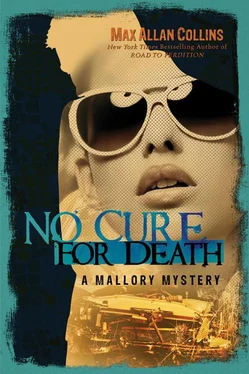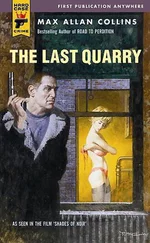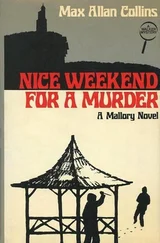Max Collins - No Cure for Death
Здесь есть возможность читать онлайн «Max Collins - No Cure for Death» весь текст электронной книги совершенно бесплатно (целиком полную версию без сокращений). В некоторых случаях можно слушать аудио, скачать через торрент в формате fb2 и присутствует краткое содержание. Год выпуска: 2012, Издательство: AmazonEncore, Жанр: Криминальный детектив, на английском языке. Описание произведения, (предисловие) а так же отзывы посетителей доступны на портале библиотеки ЛибКат.
- Название:No Cure for Death
- Автор:
- Издательство:AmazonEncore
- Жанр:
- Год:2012
- ISBN:нет данных
- Рейтинг книги:4 / 5. Голосов: 1
-
Избранное:Добавить в избранное
- Отзывы:
-
Ваша оценка:
- 80
- 1
- 2
- 3
- 4
- 5
No Cure for Death: краткое содержание, описание и аннотация
Предлагаем к чтению аннотацию, описание, краткое содержание или предисловие (зависит от того, что написал сам автор книги «No Cure for Death»). Если вы не нашли необходимую информацию о книге — напишите в комментариях, мы постараемся отыскать её.
No Cure for Death — читать онлайн бесплатно полную книгу (весь текст) целиком
Ниже представлен текст книги, разбитый по страницам. Система сохранения места последней прочитанной страницы, позволяет с удобством читать онлайн бесплатно книгу «No Cure for Death», без необходимости каждый раз заново искать на чём Вы остановились. Поставьте закладку, и сможете в любой момент перейти на страницу, на которой закончили чтение.
Интервал:
Закладка:
“Commit suicide you mean?”
“No, no, boy, that’s not at all what I mean. Under the circumstances suicide was ideal, really. It’s that he shouldn’t have gone bothering that little Taber girl.”
There was fondness in his voice; that stopped me.
“Wasn’t Janet blackmailing you, Mr. Norman?”
“Blackmailing…?” A dry rasp sounded in his throat: his laugh. “No, no, Stefan knew that wasn’t so, or he at least should have. Still, I suppose he meant well.”
“I’m… sure he did.”
“But it was so silly of him, so silly to think she was taking advantage of me. Why, I doubt she even knew of me, I kept in the background so. Stefan should have known better.”
“He should have?”
“Why, of course. He was the one I had contact the girl’s mother, he better than anyone knew how badly I wanted to find the girl, and then how pleased I was when, after several years had dragged by, she turned up again.”
“Why did you want to see her, Mr. Norman? Why would you search for Janet Taber?”
He waved a quavery hand in the air, like the reluctant blessing of a disillusioned old priest. “That doesn’t matter, not now….”
“Oh?”
“She’s dead. And her son’s dead.”
“Her son?” And I remembered Janet’s little boy and his heart trouble and the anonymous benefactor. “You were helping Janet help her son? Did you arrange for his treatment at a clinic in the east?”
He nodded. “But none of that matters. She’s dead. Her son is dead.”
“Her son,” I said.
“Her son,” he said. “Hers and Richard’s.”
I looked out the window; it caught the reflection of the smiling portrait behind us.
“My grandson,” he said. Softly. Softly.
TWENTY-FIVE
Harold was waiting for me at the bottom of the stairwell. He seemed too big to fit within the walls: he was a ship in a bottle and I wondered how it was done. He said, “How’s Mr. Norman?”
“He’s all right. I helped him back to bed.”
“You didn’t make things worse for him?”
“I’m not sure that’d be possible,” I said. “Let’s go somewhere and talk.”
He said, “I sent Rita across the street for some groceries and when she gets back she’s going to fix us breakfast. That should give us time to discuss things.”
“You were expecting this?”
“Of course,” he said. “Weren’t you?”
He led me into the empty living room, where the sun was slanting in through the many odd-shaped, undraped windows like swords stuck in a magician’s box. Our footsteps clomped, but didn’t echo. Harold gestured toward an arched doorway and I went on through it and he followed. We walked across the dead lawn and stopped a few yards from the drop-off. The river was choppy today; a gray barge was riding down to the lock and dam and wasn’t having an easy time of it. There was a crisp breeze and I wished I had worn a jacket.
“Rita says you write mystery stories,” Harold said, looking out toward the river.
“That’s right.”
He looked at me; the one eye bored into me. “You think life’s a mystery story?”
“What do you mean?”
“That tidy. That neat. That easy to deal with.”
I shrugged. “No. But life is like a mystery story, sometimes. Full of secrets somebody’s trying to keep, and can’t. Or anyway shouldn’t.”
He grunted; his breath smoked in the cold air, like the exhaust of a car. “My life isn’t a damn mystery story. Anyway it’s not your damn mystery story.”
“Maybe not,” I said. “But I’m in it.”
He thought about that. Nodded. “I guess you are.”
“Why don’t you tell me, Harold?”
“You’re the mystery writer. You tell me.”
“All right. I’ll tell you a story. It might not be much more than a story, but I’ll give it a whirl.”
He grunted again.
“Once upon a time,” I began, “there was a senator named Richard Norman. And this senator had an affair with a secretary of his called Janet Ferris. It might’ve started at his senate office in Des Moines; but it wound up in Port City, probably in a motel room, during the summer the senator was launching his campaign for national office.”
Harold just stood and listened, impassive as a rock.
“The senator had a wife, too, but she was pregnant at the time-very pregnant. She delivered a baby girl to the senator late that summer. Maybe it was during those last few months of the wife’s pregnancy that the senator finally gave in to the secretary, and what might have started as a simple flirtation turned into something more complex, more complex than just another affair, too. Because the secretary also got pregnant.
“Now I don’t know whether the senator told his wife about the pregnant secretary. I kind of doubt it. But I’m pretty sure he would’ve told his political advisor, monetary backer and guiding light behind everything he did: his father, Simon Norman. The man behind the man. And I’m pretty sure I know how Sy Norman would’ve handled the secretary: he would pay her off to go away quietly and just disappear.
“And she did. She went off to Old Town in Chicago and was a hippie with her hippie husband for a while, quite good and soured on an Establishment she’d briefly believed in. How am I doing, Harold?”
When Harold answered, I was almost surprised: it was like the rock suddenly talked. “It’s your story,” he shrugged.
“Is it? Anyway, a few years pass and in the midst of launching a second attempt to go to Washington, the senator dies in a car crash. So does his wife. And so does his only child-the only legitimate child, that is. Old Sy Norman has a stroke shortly after. And then someone remembered the pregnant secretary, and reminded the old man about her; perhaps she hadn’t had an abortion-perhaps she’d had the child.
“And so the Norman forces tracked down Janet Taber; or anyway, tracked down Janet’s mother. And it turned out Janet had indeed had the child, a son. A grandson for Sy Norman. Something that would outlive him. Something that came from him that would last. For some reason, Janet’s mother was used as a go-between. Was it because Janet was bitter toward the Normans? Could it be that that other time Janet had turned down the money they offered her, and had just disappeared into Old Town and became a hippie, snubbing their capitalistic offer?”
Harold turned his gaze on me and nodded.
“Okay, then. It starts to make sense. The mother acted as go-between; Janet suspected who was behind it, but since her child needed medical care, she went along-maybe lied to herself that it wasn’t the Normans paying the bills. Hoping it was some other good-hearted John Beresford Tipton type. Maybe it was easier for her to live with it that way. Whatever the case, whatever the reasons, she went along with it, and her son went to that clinic in the east.
“And now I have to guess. I can only guess. But I’m almost sure I’m right. A day or two before you pulled your scare tactic on Janet at the bus station, Harold-and why exactly you did that, I admit I’m still not sure of-a day or two before things started getting ugly, the boy died.”
Harold again turned his gaze on me. Again he nodded slowly. Sadly.
“I thought so! The little boy in the big fancy clinic died. But Janet Taber never knew that. She was never told. That’s something, anyway; that’s a burden she didn’t have to carry to her grave with her. But that’s about the only break she got. Because Stefan-and his killing machine, Davis-had decided to get rid of both Janet and her mother, before they found out the boy was dead.”
“And why would they do that, Mallory?”
Читать дальшеИнтервал:
Закладка:
Похожие книги на «No Cure for Death»
Представляем Вашему вниманию похожие книги на «No Cure for Death» списком для выбора. Мы отобрали схожую по названию и смыслу литературу в надежде предоставить читателям больше вариантов отыскать новые, интересные, ещё непрочитанные произведения.
Обсуждение, отзывы о книге «No Cure for Death» и просто собственные мнения читателей. Оставьте ваши комментарии, напишите, что Вы думаете о произведении, его смысле или главных героях. Укажите что конкретно понравилось, а что нет, и почему Вы так считаете.












